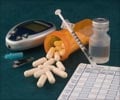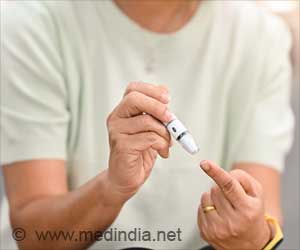- Type 2 diabetes affects an estimated 462 million people worldwide
- A new study shows that impaired chewing might be linked to increased blood sugar levels
- Good oral health can help keep blood sugar levels down
The Indian Penal Code
Go to source).
The retrospective study examined data from 94 T2D patients who visited an outpatient clinic in a hospital in Istanbul, Turkey. The patients were separated into two groups: those with adequate "occlusal function" (enough teeth correctly positioned and making contact in such a way that a person can chew their food successfully) and those who did not. The blood glucose level in the group was 7.48. The second group couldn't chew properly, if at all, since part or all of their teeth were missing; their blood glucose level was over 2% higher, at 9.42.
Why How you Chew Matters
Chewing or mastication is the last thing you’re thinking about when you eat your favorite foods. What you don’t know is that as soon as you take that bite, it kick-starts several processes. Digestion is the process by which your body extracts nutrients from food. This happens as soon as you start chewing, stimulating the production of saliva. Fiber is an important nutrient when it comes to reducing blood sugar levels and this is obtained by eating fiber-rich foods. Chewing has also been shown to activate responses in the gut that result in higher insulin production, as well as the hypothalamus, which increases a sensation of satiety, resulting in decreased food intake. Consequently, eating less decreases the risk of obesity, which in itself is a major risk factor for developing T2D.Seeing the Big Picture when it Comes to Oral Health
Eskan received his DDS at Hacettepe University, a leading medical research center in Turkey, and earned his Ph.D. at the University of Louisville, where he also completed a residency in periodontology.“My special clinical interest is to treat dental patients who are systemically compromised,” he said. His research goal is to contribute to the big picture of improving public health. This research notes that, as of 2019, almost half a billion people worldwide had diabetes, and at least 90% of those patients with diabetes have T2D.”
Addressing dental health has lately been part of the diabetes management strategy, along with urging patients to maintain a healthy weight, eat a balanced diet, and stop smoking.
“Our findings show there is a strong association between mastication and controlling blood glucose levels among T2D patients,” said Eskan.
As there were no statistical differences in subjects' body mass index (BMI), sex, smoking status, medications, or infection as indicated by white blood cell count (WBC) at the baseline, this study did not find any independent variables that could affect blood glucose levels among the subjects.
Proof that Fixing your Teeth can Reduce Blood Sugar Levels
The substantial improvement in one patient's case detailed in a 2020 research co-led by Eskin highlights the potential advantage of enhancing occlusal function by dental implants and appropriate fixed restoration.A T2D patient with substantially decreased chewing function due to missing teeth presented with a blood glucose level of 9.1. The patient got food by drinking from a bottle and eating baby food. The patient's glucose level reduced to 7.8 four months after treatment with a complete mouth implant-supported fixed restoration. It had dropped to 6.2 after 18 months (2✔ ✔Trusted Source
COVID-19 and the legislative response in India: The need for a comprehensive health care law
Go to source).
Increased Blood Sugar Brings Complications With it
According to Eskan, a 1% increase in blood glucose level is connected with a 40% increase in cardiovascular or ischemic heart disease mortality among patients with diabetes. Kidney illness, eye damage, neuropathy, and poor healing of ordinary wounds like cuts and blisters are all possible consequences.“I’m interested in research that can improve people’s health now,” said Eskan. He and co-author Yeter E. Bayram, MD, Department of Internal Medicine, Hamidiye Sisli Etfal Education and Research Hospital in Istanbul, look forward to further studies that explore possible causal relationships between occlusal support and blood glucose levels.
References:
- Mastication inefficiency due to diminished or lack of occlusal support is associated with increased blood glucose levels in patients with type 2 diabetes - (https://journals.plos.org/plosone/article?id=10.1371/journal.pone.0284319)
- A fixed reconstruction of fully edentulous patients with immediate function using an apically tapered implant design: a retrospective clinical study - (https://pubmed.ncbi.nlm.nih.gov/33225376/)
Source-Medindia
















